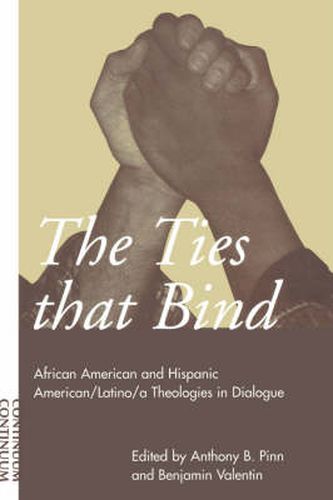Readings Newsletter
Become a Readings Member to make your shopping experience even easier.
Sign in or sign up for free!
You’re not far away from qualifying for FREE standard shipping within Australia
You’ve qualified for FREE standard shipping within Australia
The cart is loading…






The latter half of the twentieth century saw the development of liberationist and progressive theologies whose aim is both to understand life and to enhance it by focusing attention on the ways in which certain groups and ethnic minorities suffer injustices that are traceable to political economy and culture. Although African-American and Hispanic/Latino(a) theologies emerged side by side, the development and analysis of theology within these ethnic groups occurred independently of each other. That is to say, African-American and Hispanic/Latino(a) theologians and religious scholars have rarely inquired into the possibility and desirability of a cross-cultural dialogue between these two communities. Acknowledging both the previous lack of substantive dialogue and the present need for coalition among disadvantaged groups, five African-American and five Hispanic/Latino(a) theologians here explore their common historical and cultural heritage and their similar chronicle of struggle and affirmation. The aim is develop overarching meaning systems that encourage and sustain holistic imagination, notions of self and communal integrity, social activism, and solidarity. Among the topics treated are the core themes, concerns, and historical development of these two theologies; the roles played by scripture, tradition, imagination, and individual and collective experience; popular religion; Womanist and Mujerista theologies; ways of dealing with pain, suffering, and subjugation; and, finally, strategies for building bridges between communities of struggle.
$9.00 standard shipping within Australia
FREE standard shipping within Australia for orders over $100.00
Express & International shipping calculated at checkout
The latter half of the twentieth century saw the development of liberationist and progressive theologies whose aim is both to understand life and to enhance it by focusing attention on the ways in which certain groups and ethnic minorities suffer injustices that are traceable to political economy and culture. Although African-American and Hispanic/Latino(a) theologies emerged side by side, the development and analysis of theology within these ethnic groups occurred independently of each other. That is to say, African-American and Hispanic/Latino(a) theologians and religious scholars have rarely inquired into the possibility and desirability of a cross-cultural dialogue between these two communities. Acknowledging both the previous lack of substantive dialogue and the present need for coalition among disadvantaged groups, five African-American and five Hispanic/Latino(a) theologians here explore their common historical and cultural heritage and their similar chronicle of struggle and affirmation. The aim is develop overarching meaning systems that encourage and sustain holistic imagination, notions of self and communal integrity, social activism, and solidarity. Among the topics treated are the core themes, concerns, and historical development of these two theologies; the roles played by scripture, tradition, imagination, and individual and collective experience; popular religion; Womanist and Mujerista theologies; ways of dealing with pain, suffering, and subjugation; and, finally, strategies for building bridges between communities of struggle.